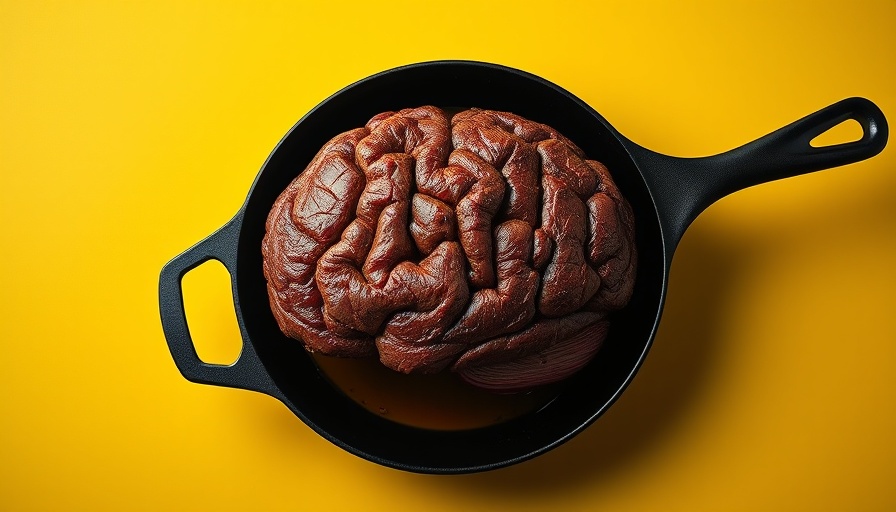
Understanding the Brain-Food Connection: How Ultra-Processed Foods Can Trigger Obesity
In today's fast-paced world, ultra-processed foods (UPFs) have become a staple in many diets. These convenient snacks and meals are not just pleasing to the palate, but recent research suggests they might also be affecting our brains and increasing the risk of obesity. Understanding this connection can enhance our approach to personal health and dietary choices.
What the Research Reveals about Processed Foods
A pivotal study published in Nature Metabolism examined the effects of increased intake of highly processed snacks on the brains of healthy men. The study divided 29 participants into two groups: one added an extra 1,500 calories from UPFs to their diet for five days, and the other maintained their usual intake. The results were striking; those consuming additional calories from UPFs showed a significant increase in liver fat and reduced insulin sensitivity even a week after returning to their normal diets.
The Role of Insulin Beyond Just Blood Sugar
Insulin is often associated with regulating blood sugar levels, but it also plays a crucial role in brain function, influencing appetite, metabolism, and cognitive abilities. As explained by experts like Dr. Scott Keatley, a disrupted insulin response caused by UPF consumption can lead to increased hunger and difficulty in processing nutrients effectively. This alteration not only sets the stage for weight gain but also affects overall health.
Why Are UPFs So Tempting?
UPFs are designed to be hyperpalatable, often combining high levels of sugar, fats, and salt. This combination can lead to addictive-like eating behaviors, as noted in multiple studies, making it challenging for many people to regulate their consumption. Dr. Mir Ali emphasizes the addictive nature of these foods, arguing that their ease of consumption and altered taste profiles can drive overeating.
The Future of Your Diet: Which Steps to Take?
In the face of this growing evidence, it becomes essential to consider our dietary choices. Experts recommend gradually reducing UPF intake and replacing them with whole food options. The Mediterranean diet, which emphasizes fruits, vegetables, whole grains, and lean proteins, serves as a great model. For instance, swapping soda and sugary snacks for mineral water and nuts can make significant strides toward better health.
What Parents Need to Know: Feeding Children
The implications of UPF consumption extend beyond adults to children and adolescents, who are particularly vulnerable due to their developing brains and bodies. Early dietary habits can set the stage for long-term health outcomes, highlighting the importance of educating families about making healthier food choices. Engaging children in cooking and emphasizing the enjoyment of fresh, whole ingredients can foster healthy habits that last a lifetime.
Conclusion: Time for Change
As research unveils the detrimental impacts of ultra-processed foods on our brains and bodies, it’s crucial for individuals and families to make informed dietary choices. Understanding that what we eat influences not just our weight but our overall health can motivate us to choose more wholesome foods. Embracing a lifestyle that limits UPF consumption broadens our awareness of nutrition and empowers us to prioritize health.
 Add Row
Add Row  Add Element
Add Element 



Write A Comment